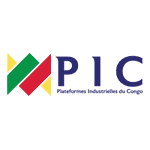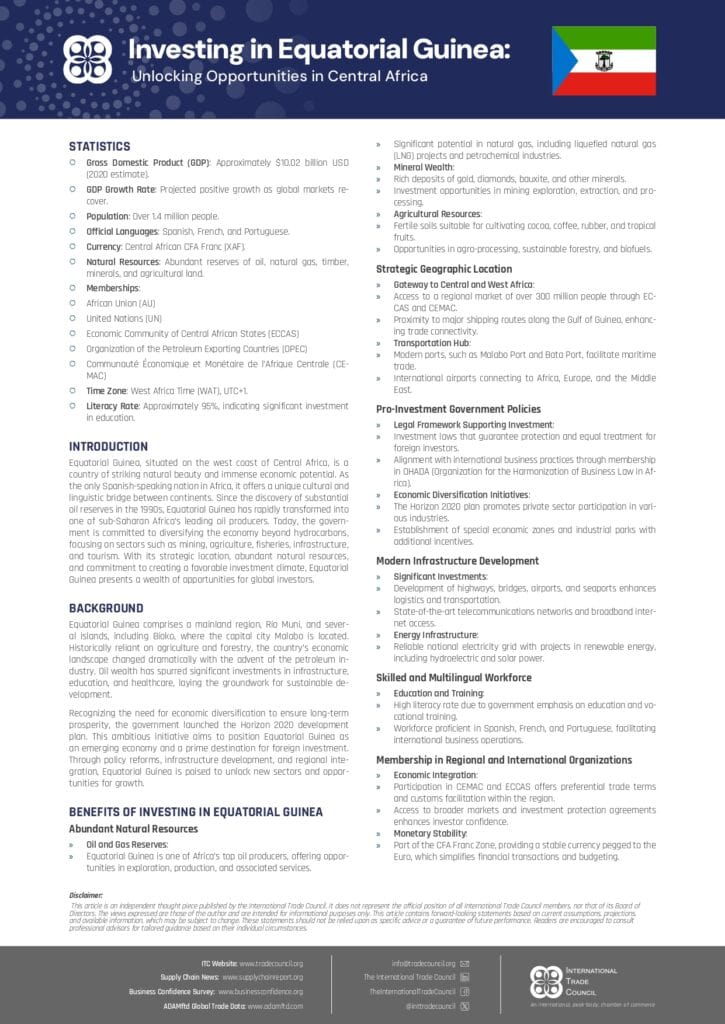- Type of Government: Presidential Republic
- Population: Approximately 5.5 million
- GDP: Around $13 billion USD
- Corporate Tax Rate: 30%
- Personal Income Tax Rate: Progressive, up to 45%
- Major Exports: Oil, timber, minerals
- Major Imports: Machinery, foodstuffs, manufactured goods
Doing Business with Congo (Congo-Brazzaville)
A comprehensive guide to doing business, exporting, investing, and manufacturing in Congo (Congo-Brazzaville).
Exporting to Congo involves several key steps to ensure regulatory compliance:
-
Conduct Market Research
- Identify demand for your product in Congo and understand the competitive landscape.
-
Verify Product Compliance
- Ensure your product meets Congolese standards and obtain any required certifications.
-
Logistics and Customs Clearance
- Work with a customs broker to manage import duties and documentation via the Customs Directorate.
Key Contacts
- Congolese Customs: Customs Website
Importing goods into Congo-Brazzaville requires registration and adherence to standard HS classification.
-
Register Your Business
- Ensure your business is registered with Congolese authorities to obtain a tax ID.
-
Classify Your Goods
- Use correct HS codes for accurate duty assessment and tariff calculation.
Incorporating a company in the Republic of Congo involves several legal steps managed by the Commercial Registry:
-
Draft Articles of Incorporation
- Prepare founding documents including details on directors and registered capital.
-
Register the Company
- File incorporation documents with the Commercial Registry to obtain a Tax Identification Number.
-
Social Security Enrollment
- Register for social insurance and mandatory employee benefits.
Key Contacts
- Ministry of Economy: Economy Website
Setting up a manufacturing plant provides access to the CEMAC regional market:
-
Choose a Suitable Location
- Identify industrial zones with access to power and logistics infrastructure.
-
Secure Financing
- Explore investment incentives offered for manufacturing in oil, timber, and mining.
Trademark protection is handled via OAPI, ensuring legal rights across member states:
-
Trademark Search
- Check availability through the African Intellectual Property Organization (OAPI) database.
-
Registration and Certification
- Trademarks are typically valid for **10 years** and can be renewed indefinitely.
Key Contacts
- OAPI: OAPI Website
1. Language and Culture
- The official language is **French**. Networking and personal trust are critical for successful business dealings.
2. Economic Factors
- The currency is the **Central African CFA Franc (XAF)**. It is pegged to the Euro, providing some exchange rate stability.
Ask our Experts on Doing Business in/with Congo (Congo-Brazzaville)
If you’re looking to do business or invest in Congo (Congo-Brazzaville), we can provide expert guidance, market insights, and valuable connections to help you navigate the local landscape. Contact us today to discover how we can assist in making your venture a success.




